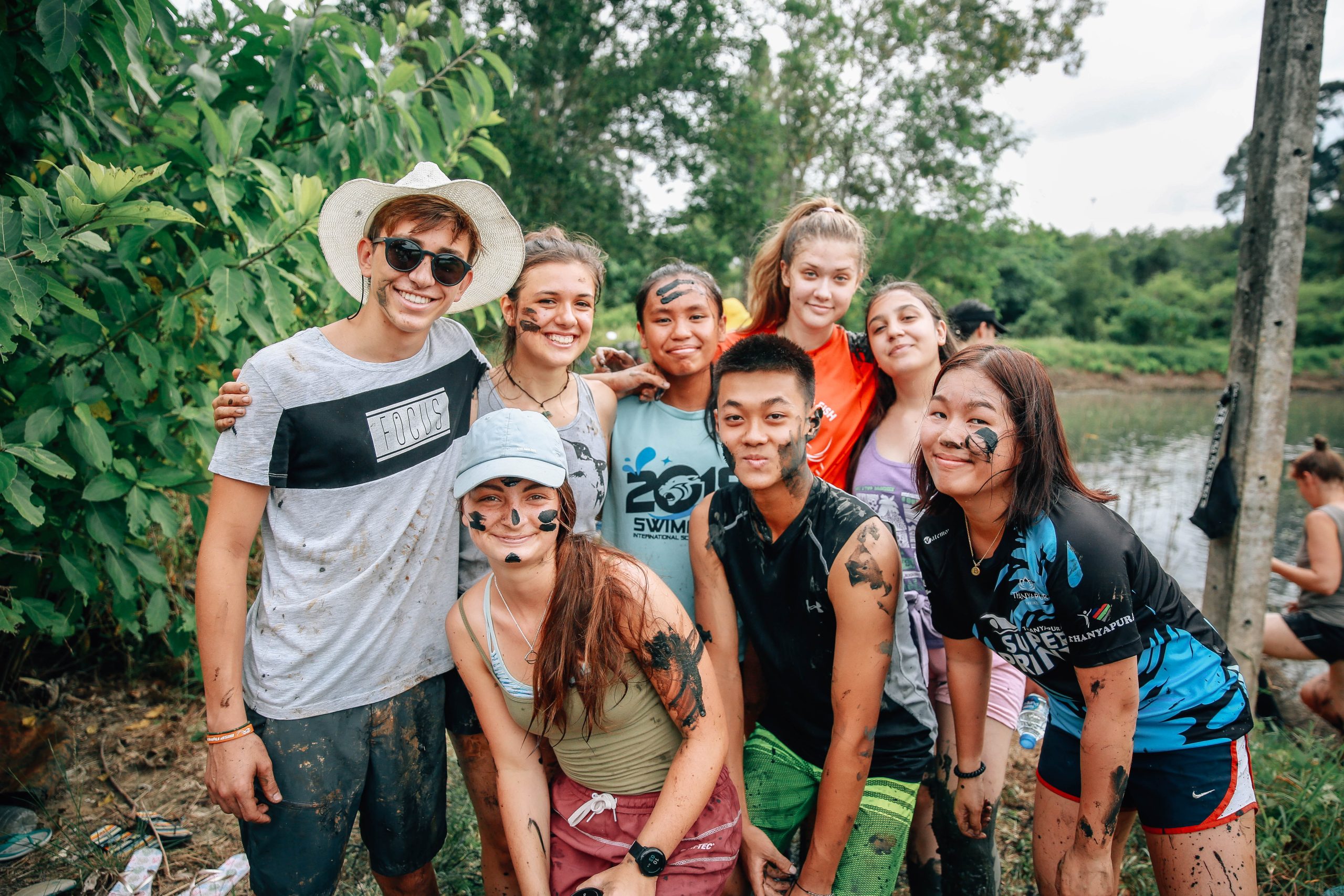Academic life at UWC
Most students attending UWC between the ages of 16 and 19 study the globally recognised International Baccalaureate Diploma Programme (IBDP), which is offered at all UWC schools and colleges. It is a challenging curriculum that allows students to explore a range of subjects and ideas, while developing their creativity and learning about the importance of activity and service in the community.
In fact, UWC played a key role in crafting the IBDP back in the 1960s, and the ties between the IB and UWC remain close decades later.
The IBDP aims to “encourage students across the world to become active, compassionate and lifelong learners who understand that other people, with their differences, can also be right.” It is respected in the best universities worldwide for the balance it strikes between breadth and depth of subjects and its focus on service, communication, teamwork, leadership and critical thinking.
“Hoewel de IBDP soms behoorlijk overweldigend was en er veel te leren viel, gaf het me over het algemeen veel meer zelfvertrouwen en leerde het me hoe ik moest studeren. Mijn eerste jaar op de school voelde veel gemakkelijker dan mijn tweede jaar IBDP. Ik ben veel zekerder van de dingen die ik zeg omdat ik ze onderzoek, en ik ben zoveel beter in schrijven. ”
– Leonor, UWC Mahindra College
Which subjects can students take for the IBDP?
Which subjects can students take for the IBDP?
IBDP students take a total of six subjects, one chosen from each of the following groups:
Leerlingen volgen over het algemeen drie vakken op standaardniveau en drie vakken op een hoger niveau. Op een hoger niveau wordt van hen verwacht dat ze een grotere hoeveelheid kennis, begrip en vaardigheden demonstreren. De beschikbare vakken kunnen variëren tussen UWC , vaak als gevolg van hun geografische locatie en aandachtsgebieden. Afgezien van examens, bevatten IB-cursussen ook cursuscomponenten waarmee studenten hun eigen onderzoeksonderwerpen binnen een onderwerp kunnen nastreven. Veel leerlingen verbinden hun academische leren met hun bredere interesses op gebieden als duurzaamheid, intercultureel begrip en sociale rechtvaardigheid.
IBDP subjects at UWC
IBDP subjects at UWC (in English)
As well as the six subject groups, students complete three core components of the IBDP, which are central to the philosophy of the programme. These are:
Extended Essay (EE): Students choose and investigate a topic of special interest, and develop the independent research and writing skills required at university level. The essay is typically written in one of the student’s six subjects and must be no more than 4,000 words in length. Students are supported in the research and writing process by an academic supervisor.
Theory of Knowledge (TOK): The course encourages students to reflect on the nature of knowledge and strengthen connections between their different subject areas. It is assessed through an exhibition and a written essay.
Creativity, Activity, Service (CAS): Taking responsibility, developing social, creative and outdoor skills, as well as learning to approach others with empathy are at the heart of the programme. Students engage in a variety of projects that aim to develop these skills, while at the same time actively engaging with their local community.
Other academic options at UWC
Other academic options at UWC
Once a UWC national committee-selected student is accepted by the college, they are able to apply to attend other IB programmes available at some of our UWC schools. Options available include:
- International Baccalaureate Career-related Programme (IBCP) – bij Pearson College UWC en UWC Maastricht
Net als het IBDP is het IBCP een rigoureus onderwijsprogramma dat studenten de mogelijkheid biedt om zich te specialiseren in een specifiek vakgebied. Bij UWC volgen IBCP-studenten minimaal twee IBDP-cursussen, een loopbaangerelateerde studie en een IBCP-kern.
- UWC Pilot Programme: Systems Transformation Pathway (STP) – bij UWC Atlantic en UWC Zuidoost-Azië
Leerlingen die de STP volgen, werken aan een volledig IB-diploma, maar volgen een combinatie van vier reguliere IB-vakken naast een op maat gemaakt interdisciplinair programma dat is ontworpen om de vaardigheden, attitudes en capaciteiten te ontwikkelen die ze nodig hebben om complexe en onderling afhankelijke systemische uitdagingen aan te pakken. Deze op maat gemaakte cursus telt mee voor twee standaard IB-vakken en wordt niet beoordeeld aan de hand van examens, maar aan de hand van authentieke impactanalyses, reflecties en projectportfolio’s.
